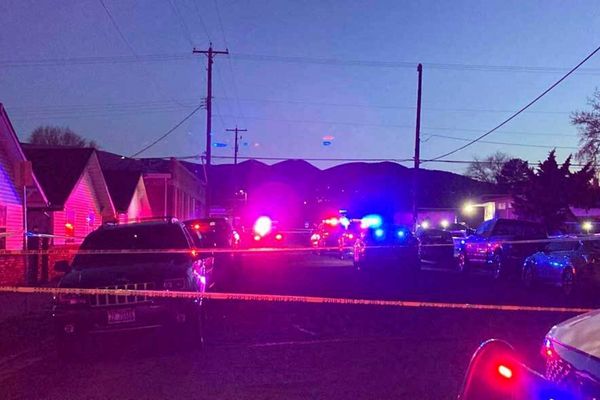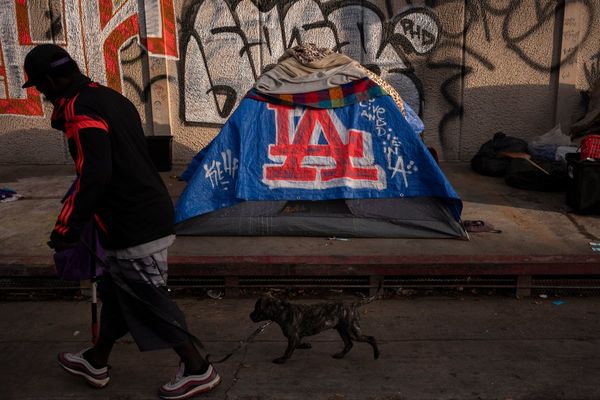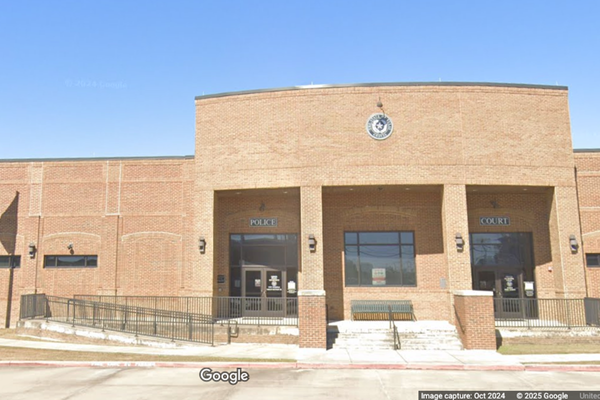
Florida is prohibiting high school students from enrolling in an advanced course on African American studies following a state law backed by Governor Ron DeSantis that restricts classroom instruction on race and racism.
Education officials said the advanced placement, or AP, course – which allows high school students to obtain college credits – runs “inexplicably contrary” to state law and “significantly lacks educational value.”
A letter dated 12 January from the Florida Department of Education to the College Board, which administers AP exams, said the board is welcome to return to the agency with “lawful, historically accurate content”.
The College Board is piloting the AP African American studies course – co-developed by Henry Louis Gates Jr and drawing from history, literature, political science, art and other subjects – in dozens of public high schools.
Florida’s letter does not explain exactly which law the course violates, but the decision follows last year’s passage of a “Stop WOKE Act” that limits how so-called “divisive concepts” like systemic racism and white supremacism can be explained in schools as well as employer training and human resources initiatives, following a national panic over “critical race theory” seeping into elementary classrooms.
The “Individual Freedom Act” bars schools and employers from instruction that makes students and employees “feel guilt, anguish, or other forms of psychological distress for actions, in which he or she played no part”.
Last year, however, a federal judge blocked critical parts of the law, which he derided as “positively dystopian” and invoked George Orwell’s novel 1984 to criticise the law’s apparent doubletalk. He also compared the state to the “upside down” from the Netflix series Stranger Things, accusing Florida lawmakers of trampling First Amendment rights and imposing a “naked viewpoint-based regulation on speech”.
US District Judge Mark Walker issued a temporary injunction in November, arguing that the law violates free speech protections under the First Amendment and equal protection under the 14th Amendment because of its disparate impact on Black teachers and students.
“Our professors are critical to a healthy democracy,” he wrote, adding that the state’s decision to “choose which viewpoints are worthy of illumination and which must remain in the shadows has implications for us all.”
“If our ‘priests of democracy’ are not allowed to shed light on challenging ideas, then democracy will die in darkness,” he added.
Democratic state Senator Shevrin Jones noted that Florida schools offer AP classes in European history as well as Japanese, German, Italian and Spanish language and culture.
“It’s crazy how AP African-American studies made the chopping block,” he said on Twitter.
“This political extremism and its attack of Black History and Black people … is going to create an entire generation of Black children who won’t be able to see themselves reflected at all within their own education or in their own State,” he added.
Jeremy C Young, senior manager of free expression and education at PEN America, warned that “bans on course content and gag orders against teachers are tools of authoritarianism”.
“They run counter to the subject-matter expertise that should shape school curricula,” he wrote in The Daily Beast. “And it’s always wrong to use educational opportunities for students as a political football, no matter which elected or appointed officials are doing it.
He said lawmakers “should regard this ill-advised act of censorship as a cautionary tale,” adding that the case “is not how public education should be governed in a democracy.”
The DeSantis administration has sought to radically reshape education in the state, from backing right-wing school board candidates who adhere to his agenda, to appointing a prominent anti-LGBT+ activist to a queer-friendly liberal arts college.
Mr DeSantis also advanced a separate law, denounced by its critics as “Don’t Say Gay or Trans”, that broadly restricts classroom discussion of sex and gender, leading to a host of complications and fears of a chilling effect for LGBT+ students and staff.
Last year, the College Board issued a statement stressing that the organisation is “animated by a deep respect for the intellectual freedom of teachers and students alike” and “opposes indoctrination”.
“AP students are not required to feel certain ways about themselves or the course content,” according to the statement. “AP courses instead develop students’ abilities to assess the credibility of sources, draw conclusions, and make up their own minds.”







